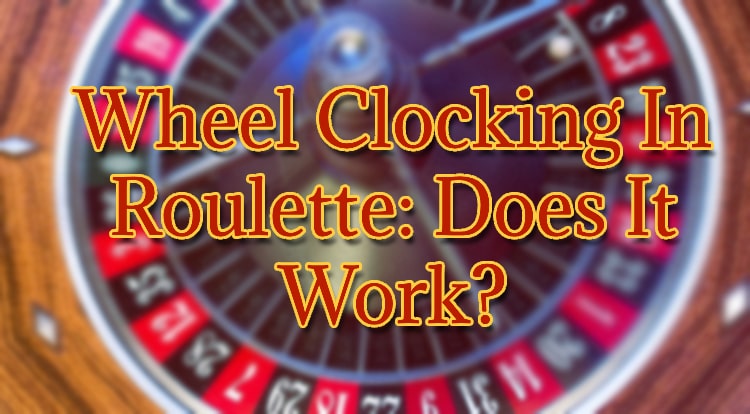
When it comes to roulette, players often think up new ways of trying to find a way to beat the odds and win consistently. One such method that has sparked interest is wheel clocking.
Wheel clocking involves closely observing the wheel and ball's movements and comparing each spin to previous ones to predict where the ball might land. It sounds intriguing, but does it actually work?
In this post, we'll explore what wheel clocking is, how it theoretically works, and whether it's a viable strategy for winning at roulette.
Let's dive in and find out the truth behind this fascinating concept.
What Is Wheel Clocking In Roulette?
Wheel clocking is a technique that some players try to use to get an edge in roulette. It is based on observing the physical properties of the roulette wheel and the ball.
The idea is to watch how the ball and wheel move as the wheel is spun. By carefully observing these spins, one hopes to spot patterns. These patterns might then help predict where the ball will land in future spins.
Rather than depending purely on chance, which is the case in normal roulette play, wheel clocking aims to use physics and keen observation. It's about using real-time data to guess the likely outcome.
However, it's important to remember that roulette wheels are designed to be as random as possible. Each spin is an independent event, meaning previous results have zero impact on future outcomes, so there are no patterns to identify. Also, modern casinos have very strict controls and maintenance processes to reduce any predictability.
How Does Roulette Wheel Clocking Work?
Now that we've discussed what wheel clocking is, let's take a closer look at how it works.
Visual Wheel Clocking
Visual wheel clocking relies on a player's keen observation skills. The player watches the wheel and ball closely as the croupier spins the wheel. By tracking the speed and trajectory of the ball and wheel over several spins, they try to spot patterns.
For example, the player may note how often the ball lands in certain sections of the wheel. The idea is to identify any slight biases or imperfections that could influence the ball's landing spot.
However, this method requires intense concentration and practice. Plus, modern roulette wheels are designed to minimize these biases through their design and regular maintenance checks, making visual wheel clocking very challenging.
Electronic Wheel Clocking
Electronic wheel clocking takes the concept a step further by using technology. Devices like computers or smartphones can be used to record spin data. These devices calculate the ball and wheel's speed and make quick predictions about where the ball might land.
Players might then place their bets based on these predictions, hoping for more accurate results than relying on visual observation alone.
It's important to note that using electronic devices in casinos is illegal and can result in severe consequences. Casinos have strict security measures, and any attempts to use such devices can lead to being banned or even facing legal action.
Also, said devices are yet to be proven effective. Slight imperfections on the surface of the ball and the wheel, changes in air pressure and humidity, and a range of other uncontrollable variables impact the outcome and contribute to the randomness of roulette, which these devices cannot account for.
In summary, while wheel clocking is an interesting concept, both visual and electronic methods come with significant challenges and risks.
Is Wheel Clocking Legal In Roulette Games?
The legality of wheel clocking in roulette can be a bit complex, depending on the method used.
Observing the wheel and ball with your eyes, known as visual wheel clocking, is generally considered legal because the player is essentially just watching the wheel and ball and searching for patterns that do not exist. Players are free to do this. However, it's worth remembering that casinos have measures in place to ensure the game remains fair and random - i.e. that there are no biases on the wheel.
Using electronic devices or hidden computers to clock the wheel is a different story. This method is strictly illegal in most casinos. Such devices go against the rules and can lead to severe consequences, including being banned from the casino or facing legal action.
Casinos are very vigilant about maintaining the integrity of their games. They employ advanced security to detect and prevent any unfair practices.
In summary, while observing the wheel with the naked eye may be allowed, using any form of technology to even try to gain an advantage is illegal and can lead to serious consequences. Always play responsibly and within the rules for a fair and more enjoyable experience.
